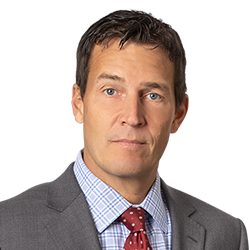Missouri Supreme Court Explains Some Ground Rules for Using Multiple Experts
The Missouri Supreme Court has firmly upheld the right of a party to present multiple expert witnesses during the trial of a medical malpractice case. Shallow v. Follwell, 554 S.W.3d 878 (Mo. banc 2018). The Supreme Court disagreed with the Court of Appeals’ decision in the case, and instead affirmed the trial court’s overruling of plaintiff’s objections that the testimony of multiple defense experts was prejudicially cumulative. In doing so, the Supreme Court affirmed the jury verdict in favor of the physician defendant.
In this wrongful death, medical malpractice action, the three adult children of decedent Saundra Beaver claimed that Dr. Follwell negligently performed decedent’s bowel surgery and then failed to recognize post-surgical problems which developed into sepsis, which caused the patient’s death. During trial, plaintiff presented one medical expert (whose specialty was not described in the opinion), and also the testimony of a treating surgeon. Dr. Follwell presented four expert witnesses and also testified on his own behalf as a fact witness and an expert witness. The jury found for Dr. Follwell.
In post-trial Motions, plaintiffs alleged the trial court had erred in: 1) allowing prejudicially cumulative testimony from Dr. Follwell and his four expert witnesses; and, 2) permitting Dr. Follwell to testify at trial to a causation opinion different than that which he had offered at his own deposition. The trial court denied plaintiff’s post-trial Motions and plaintiffs appealed.
The Eastern District Court of Appeals had admonished the trial court for having ignored its duty to properly assess whether the testimony of all five defense expert witnesses was needed, and whether it was legally relevant. That court described the four retained experts as a “chorus of the same ultimate opinions…” which “posed a substantial risk of interfering” with the jury’s ability to properly decide the case.
After taking the case on transfer, the Missouri Supreme Court affirmed the jury’s verdict after analyzing the two main points which plaintiff/appellant had put before the trial court and the Court of Appeals.
I. Testimony of Multiple Experts Was Not Cumulative
One of Dr. Follwell’s defense theories was that the patient had a complex cardiac condition which caused her bowel injury. Dr. Follwell retained four experts, all with a separate specialty, which included: 1) cardiology; 2) general surgery and critical care; 3) colorectal surgery; and, 4) vascular surgery.
In finding that the trial court had not erred in denying plaintiffs’ objections that the defense experts’ testimony was prejudicially cumulative, the court stated it had carefully reviewed the trial transcripts, which showed that Dr. Follwell and his expert witnesses had “testified about the very root of the matter in controversy”, and so the evidence was not cumulative. The court also made clear that the rule against cumulative evidence remains intact, but that evidence is prejudicially cumulative only when it relates to a matter which is already so fully and properly proven by other testimony or evidence, that it removes it from the “area of serious dispute”. (The Supreme Court also noted that it appeared no sufficient trial record was made as to the objections to the purportedly cumulative nature of the challenged testimony.)
The court also made clear that evidence can be cumulative without necessarily being prejudicial. The Court observed that at trial, Dr. Follwell’s four experts testified contrary to the expansive testimony of plaintiff’s sole retained expert witness. However, in doing so, those four experts were testifying about issues – standard of care and causation – which were at the very core of the controversy. At the same time, the Supreme Court cautioned that a trial court should be alert to the risk of having jurors resolve differences in opposing expert witness testimony simply by the sheer number of witnesses called to testify, rather than giving due consideration to the quality and credibility of each expert’s opinions. Such a circumstance could well be prejudicial.
The Supreme Court also emphasized that the Circuit Court, “enjoys considerable discretion in the admission or exclusion of evidence and, absence clear abuse of discretion, its actions will not be grounds for reversal.” Whether to exclude evidence on ground of unfair prejudice rests in the discretion of the Circuit Court. The Circuit Court is uniquely positioned to evaluate the testimony of witnesses and to determine its prejudicial impact when prompted by a timely objection. The Court found that when considering the testimony of Follwell’s multiple expert witnesses, the trial court showed careful, deliberate consideration of plaintiff’s objections.
II. Dr. Follwell Did Not Offer a New Opinion at Trial
As to the claim that Dr. Follwell was improperly permitted to offer a different opinion at trial than at his deposition, the court pointed out that the purpose of preventing witnesses from offering new opinions at trial “is to relieve a party who is genuinely surprised at trial”. This can occur when an expert suddenly has an opinion where he had none before, renders a substantially different opinion than that earlier disclosed, and/or uses facts to support or newly bases that opinion on data or facts not earlier disclosed.
The court’s opinion contains pertinent portions of Dr. Follwell’s trial and deposition testimony to support its conclusion that the trial court did not err in overruling plaintiffs’ objections to Dr. Follwell testifying as he did at trial because he did not offer a substantially different opinion than what he offered at his deposition.
Here, the court found a central issue about which Dr. Follwell testified was the cause of the patient’s ischemic, and then necrotic, bowel. In both situations (deposition and trial), Dr. Follwell testified that vascular injury could cause bowel ischemia. He had also testified that he had not seen a surgical perforation of the bowel cause a vascular injury which then led to necrotic bowel.
Conclusion
Follwell is an important decision for a number of reasons, perhaps chiefly because it reaffirms the right of a party to defend itself with a sufficient number of expert witnesses, even where one’s adversary has chosen to use fewer expert witnesses. Follwell also demonstrates the crucial importance of making a proper and complete record at the trial court level, so an appellate court has the ability to fully examine that record, including the objections made by trial counsel.
At Baker Sterchi Cowden & Rice, we are committed to providing our attorneys with as full an education as possible in the fine art and science of trial work. We believe this is all the more important with the opportunities for jury trial experience diminishing, due to the shrinking number of jury trials across the country.
related services

Kansas City Area Returns to Pre-Pandemic Jury Verdict Trends ...

When Artificial Intelligence leads to Genuine Stupidity ...
About Missouri Law Blog
Baker Sterchi's Missouri Law Blog examines significant developments, trends and changes in Missouri law on a broad range of topics of interest to Missouri practitioners and attorneys and businesses with disputes subject to Missouri law. Learn more about the editor, David Eisenberg.
Subscribe via email
Subscribe to rss feeds
RSS FeedsABOUT baker sterchi blogs
Baker Sterchi Cowden & Rice LLC (Baker Sterchi) publishes this website as a service to our clients, colleagues and others, for informational purposes only. These materials are not intended to create an attorney-client relationship, and are not a substitute for sound legal advice. You should not base any action or lack of action on any information included in our website, without first seeking appropriate legal or other professional advice. If you contact us through our website or via email, no attorney-client relationship is created, and no confidential information should be transmitted. Communication with Baker Sterchi by e-mail or other transmissions over the Internet may not be secure, and you should not send confidential electronic messages that are not adequately encrypted.
The hiring of an attorney is an important decision, which should not be based solely on information appearing on our website. To the extent our website has provided links to other Internet resources, those links are not under our control, and we are not responsible for their content. We do our best to provide you current, accurate information; however, we cannot guarantee that this information is the most current, correct or complete. In addition, you should not take this information as a promise or indication of future results.
Disclaimer
The Missouri Law Blog is made available by Baker Sterchi Cowden & Rice LLC for educational purposes only as well as to give you general information and a general understanding of the law, not to provide specific legal advice. Your use of this blog site alone creates no attorney client relationship between you and the firm.
Confidential information
Do not include confidential information in comments or other feedback or messages related to the Missouri Law Blog, as these are neither confidential nor secure methods of communicating with attorneys. The Missouri Law Blog should not be used as a substitute for competent legal advice from a licensed professional attorney in your state.











